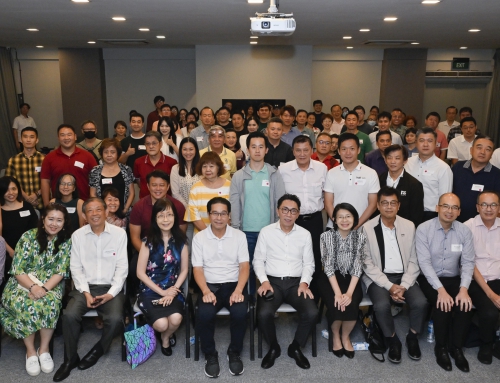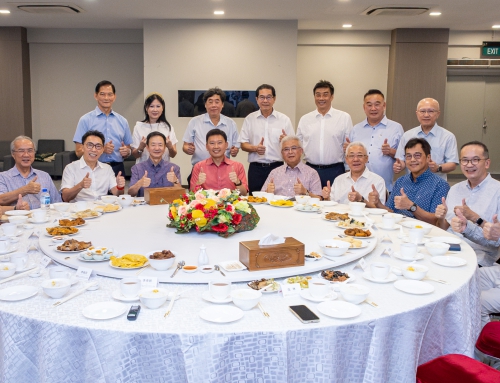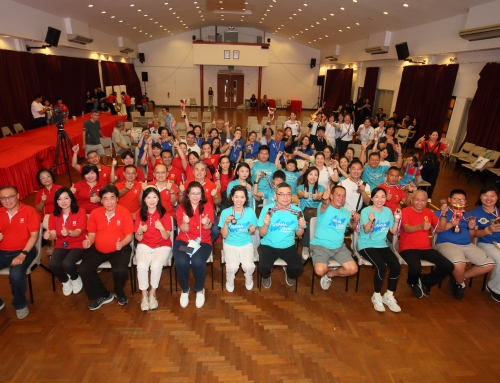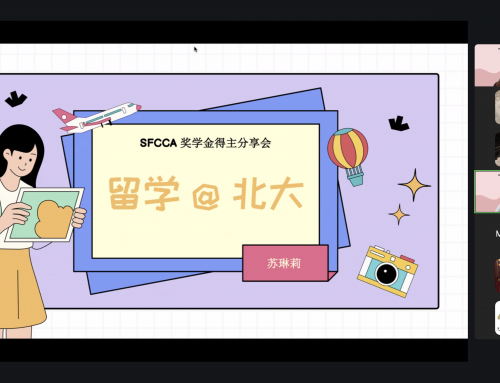The “Singlish & Singaporean Mandarin, You Sure You Know It ~ ” online seminar was successfully held on 26 December 2020 via video conference platform, Zoom, as part of the New Immigrants and Singapore Society Experiential Series organised by the Singapore Federation of Chinese Clan Associations (SFCCA). It attracted a total of 87 people and was live streamed on the Facebook page of SFCCA. Keynote speakers, Lyu Linxuan and Dr. Gwee Li Sui, explored the topic of Singlish and Singaporean Mandarin along with the audience.
The first guest speaker of the seminar was Lyu Linxuan, a DJ at Mediacorp’s Chinese News radio station, Capital 958. During the seminar, he shared various interesting stories about his career from being a theatre actor to a radio DJ, which allowed him to gradually adapt to the Singaporean language. He believes that the primary purpose of language is communication, and as long as one can express themselves better, even if Singaporean Mandarin is mixed with other languages, it can still achieve the goal of communication. He also encourages participants to be confident in the language they are speaking and to not be afraid of making mistakes. Even if they make mistakes, they can also learn more about different cultures and grow from the mistakes.
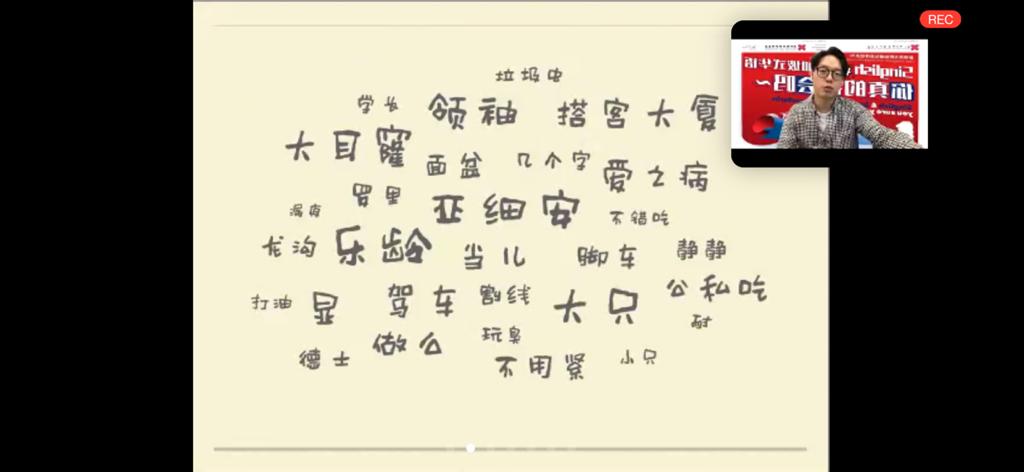
Singaporean Mandarin vocabulary
In his sharing, Lyu also stated where some Singaporean Mandarin vocabulary came from. For example, words that formed from different Chinese dialects such as “kaypo” which originated from Hokkien, referring to the act of being nosy or a busybody. In addition, some words were also taken from English and Malay such as “巴士” (ba-shi) which is the transliteration of the english word “Bus”, referring to public transport. Another word “巴刹” (ba-sha) originated from the malay word “Pasar”, referring to markets. The various examples provided by Lyu, reflects Singapore as a melting pot of cultures and the vibrancy of Singaporean Mandarin.
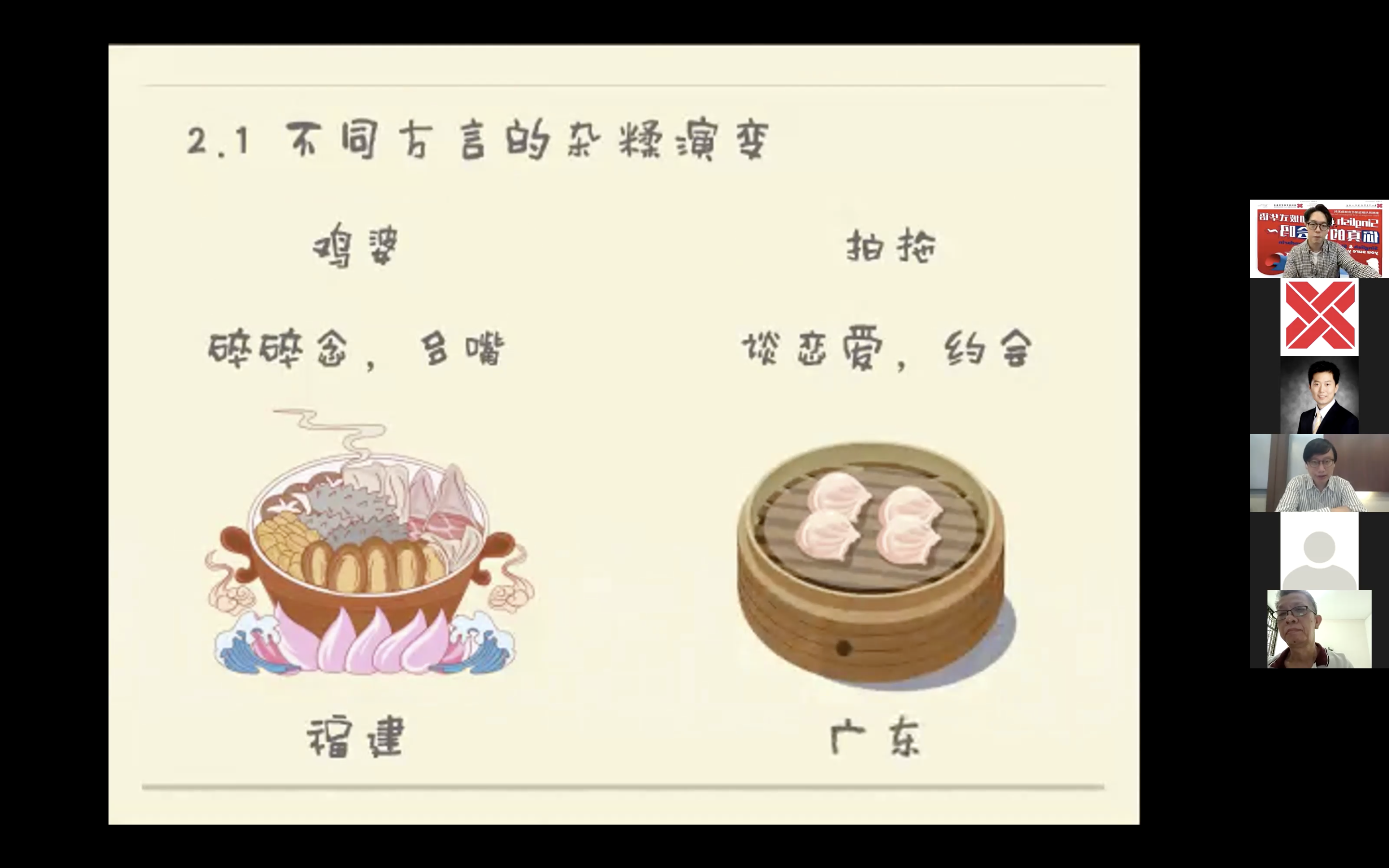
How Singapore-style Chinese was formed
Following Lyu’s sharing, Dr Gwee Li Sui, a local poet and literary commentator, also expressed his views on Singlish (Singaporean English). He pointed out that Singlish is a unique language that is not just spoken by those who have low levels of proficiency in Standard English. Due to Singapore’s colonial history and multicultural background, Singlish is a language that is highly inclusive of different cultures.
Dr Gwee showcased different scenarios in everyday life where Singlish is used. For example, the Malay word ‘Makan’, which means ‘eat’ and the adjective ‘Shiok’, which is used to express satisfaction. Other examples were ‘Sabo King’, referring to one who often sabotages others, and ‘Buay Tahan’, a combination of the Hokkien phrase for ‘cannot’ and the Malay phrase for toleration, meaning the inability to tolerate something. He also mentioned interesting Singlish expressions, such as ‘lah’, ‘leh’, ‘lor’. With just one word, different meanings and tones can be expressed, making it one of the distinctive features of Singlish and Singaporean Mandarin.
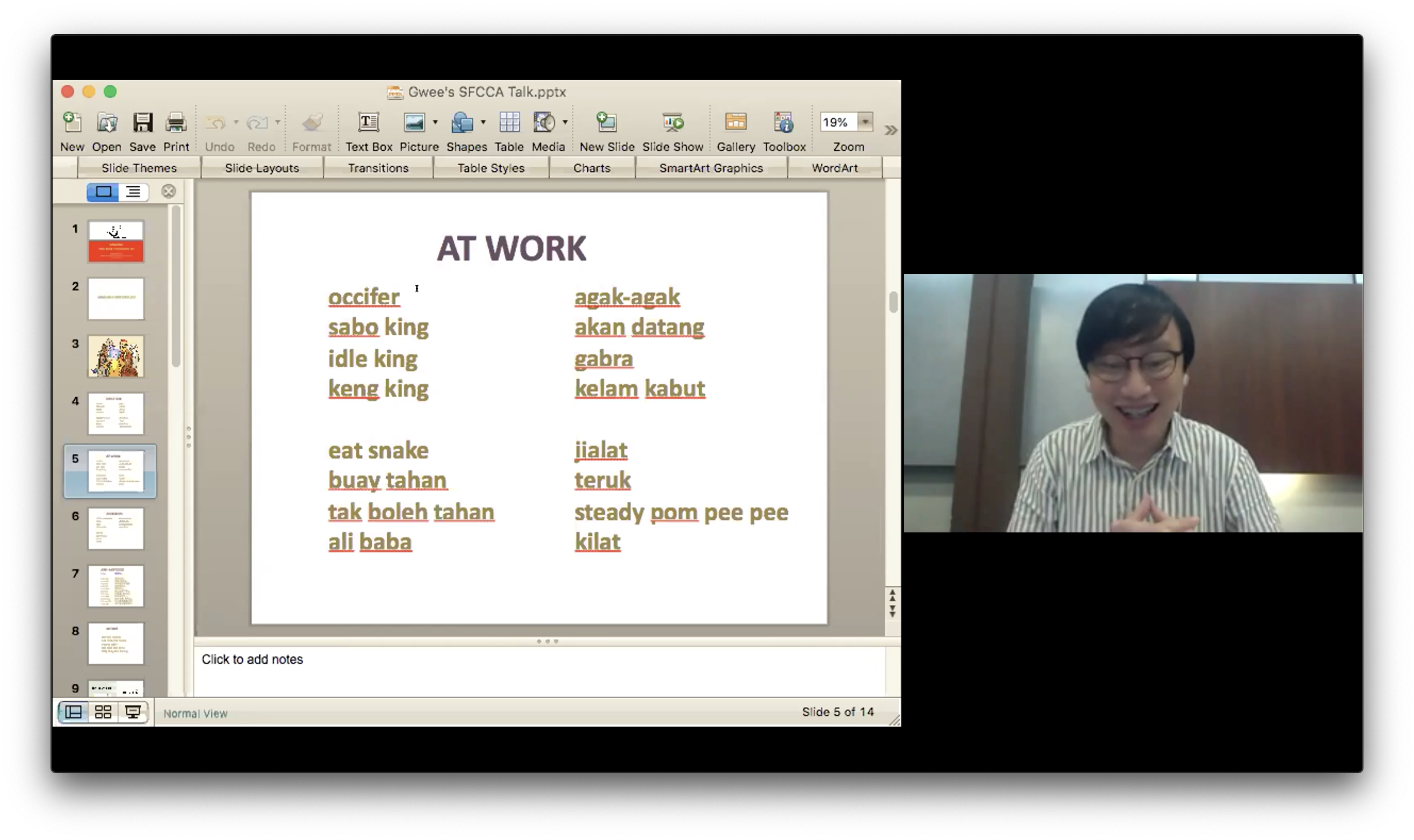
Examples of Singlish in workplaces
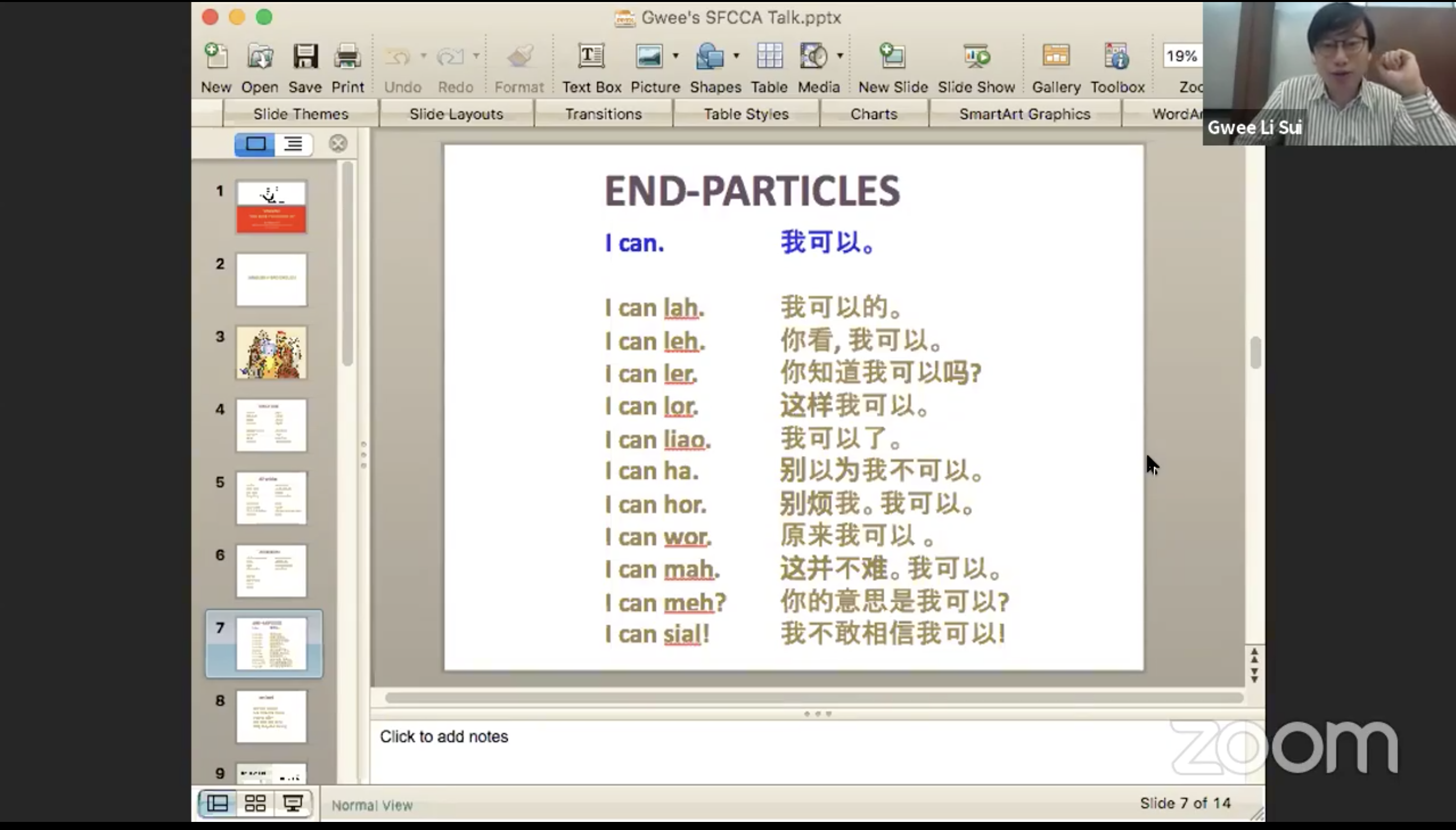
Using Singlish as end-particles
Also, Dr. Gwee shared selected parts of “lThe Leeter Tunku”, the Singlish version of “The Little Prince”, a well-known French storybook, which he translated. He invited the audience to read along with him to experience the beauty of Singlish.
In the final Q&A segment, both speakers and host Dr Yun agreed that while it is important to be able to speak standard English and Mandarin, learning Singaporean languages allows one to better understand our local culture and helps new immigrants to integrate into our society. This seminar has also provided a platform for its participants to exchange knowledge, fostering mutual understanding and communication between locals and new immigrants.

